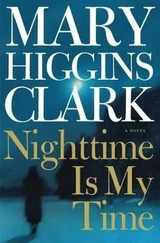“I can explain!” I said.
The policeman pulled me out roughly and down to the street (I chipped my front tooth), then threw a knee in between my shoulders as he yanked my wrists up behind my back.
I turned my face to one side, my cheek pressed down into the cold pebbly blacktop. A man stood on the lawn of the corner house facing me. He leaned into a rake behind a pile of leaves, not moving when the wind picked up and began to undo all of his hard work. I imagine this was when the officer was reading me my rights. I don’t remember it. At some point I closed my eyes and wished — wished so strongly — that I could just fall asleep.
Because of the holiday weekend, I wasn’t formally arraigned until Monday morning. It was then that I was charged with two counts of misdemeanor hit-and-run, driving while under the influence (the lorazepam), and something called “depraved indifference.” My attorney made much of my “unreasonable detention,” reminding the court of my legal right to be seen by a judge within seventy-two hours, and the way he argued you would’ve thought I’d been held in a secret prison for twelve years. In truth, I hadn’t minded the delay. It had kept me from having to explain myself to Betty or the kids until after the judge had refused to dismiss my case for what she called “a harmless error” and set a date for my preliminary hearing.
“Basically,” I told my family that evening, after I’d posted bail and we were sitting around the kitchen table eating Chinese, “they say I stood by and did nothing while Hickey took his life. They say I may even have assisted him.”
“And did you?” Priscilla said.
“No. God no. It was all a mistake. He wasn’t even the one sending me those packets of sweetener.”
Betty had picked me up from the jail and driven me home, but she’d said little more on the way than this: “I don’t want to argue. I want to believe you. I just need to hear the truth.” Now, as she fiddled with her chopsticks, she said she could’ve told me it wasn’t Hickey if only I’d left the house with my phone that day.
When I looked at her for an explanation, she sent my eyes on to my mentor, who sat there silently in his chair, as still as a forgotten memory.
“He woke up after you left and asked for coffee,” she said. “He refused the sugar, so I looked for the Sweetness #9 in the cupboards. There wasn’t any. It was all upstairs on our bed.”
I followed her eyes to the ceiling, then looked back down to the table when I understood.
Ernest smirked, shaking his head. “Swastikas,” he said. “Jesus.”
“But why?” I asked.
Betty had had plenty of time to think about it. She reminded me that I’d only started receiving the packets at home after Ernst had moved in with us. “He must’ve awoken in the night and put the package together.” He was sleeping in the study, after all, the same room where we had a desk and kept the office supplies. Before that, she said, he could’ve dropped the envelopes at the office on one of his long walks through the neighborhood.
“He made that walk for years,” she reminded me. “The wires in his brain must have crossed up.”
“But why?”
The phone rang, interrupting us. I rose to get it and heard the voice of a foreign man on the other end.
“You are David Leveraux?” he said.
My attention became more focused. “Yes.” Was he Albanian?
“Great-great-grandson of Jürgen Mockus?”
I was nodding now. “Yes,” I told him, “yes I am,” and then he was speaking to me excitedly, asking if he could arrange to visit when he came to New York City the following month.
“Who was it?” Betty asked when I’d hung up.
“A cousin,” I said, still standing by the phone.
“What? I thought you didn’t have any relatives.”
“Long-lost, apparently.”
“Well, that’s great. Where’s he from?”
I spoke the word as if it were the name of a newly discovered planet. “Lithuania.”
Priscilla looked up from her tea. “We still have family in Lithuania?”
Betty looked at her. “What do you mean ‘still?’”
“He’s a bureaucrat of some kind,” I said. “The Mormons came through Vilnius last month, asking for access to their records. One thing led to another and he found me.”
“But I thought you were French-English,” Betty said.
“As it so happens, I’m half-Lithuanian. “
“How am I only now hearing this?”
I came over to the table and sat down. “My grandfather changed his name from Mockus to improve business. Said ‘Leveraux’s Fine Footwear’ had a better ring to it than ‘Mockus’s Shoes.’ You know the French brand: very reliable. Anyway, my father was always threatening to change the name back, but he never got around to it. For me, with everything my grandfather did, it was never a question.
Betty got up and started walking circles. “This is unbelievable,” she said. “My husband has a slave name.”
Ernst Eberhardt came alive then, lifting his eyes as if the distant past had just come into view. “I knew a Lithuanian once,” he said. “A homosexual like the man from Munich.”
His eyes were clear, his voice strong and steady. It was as if he’d been conserving his energy these last few hours in anticipation of telling me this, a story I’d heard before, though a different version, one that contained all of the parts that he, as a good German, had previously skipped.
“This was in Peenemünde,” he said, “where they had us working on special projects before I got reassigned to the Hitler Detail.”
After England had defended itself in the skies and the United States had entered the conflict to truly make it a world war, Pabst, Pfaff & Pfeiffer was shuttered and Ernst was given a simple choice: the Eastern Front or the Baltic coast. He chose the latter, having been told that once there, he could expect to enjoy the company of Heisenberg, Stark, Lenard, and of course Werner von Braun, the man behind Hitler’s V-2 rocket.
When Ernst arrived in 1942, he saw this claim was perhaps overstated. He was one of five thousand souls working there, and while Heisenberg, Stark, and Lenard often strolled the grounds at the side of the great man himself, Ernst was far away from the center of power and authority, assigned to a small unit of flavor chemists who had been given only the vaguest instructions to develop a Wunderwaffe that would deprive the enemy of its will to win.
This chemical weapon should not be developed to destroy the enemy, they were told. If it was annihilation they were after, they would have already showered London and St. Petersburg with anthrax and unleashed all of the colorful gasses of the First World War. “Someone will still have to drive the buses when we get there,” Hitler had reportedly said, and so Ernst had gone to work each day trying to create a wonder weapon that the Führer could deliver on the tip of a silent V-2 rocket.
The request intrigued Ernst more than the implications of it troubled him. He considered it while eating, while dreaming, even while performing his calisthenics in the morning. A militarized flavor — such an intellectual challenge! What would it taste like? How could it be deployed to make a citizenry compliant and weak? He emptied and filled his test tube each day, trying out one fearful idea after another. But who was he kidding? Hitler had asked for a weapon of mass deception, and all he could deliver was a better butterscotch.
After the British bombing raid of ’43, in that listless week or two before the scientists were sent inside a mountain to continue production of the V-2, Ernst was joined in a makeshift lab every day by the only other surviving flavor chemists: a tall and lanky Lithuanian and a sallow-faced young man from Munich who wore spectacles and was always grinning at some private thought.
Читать дальше












